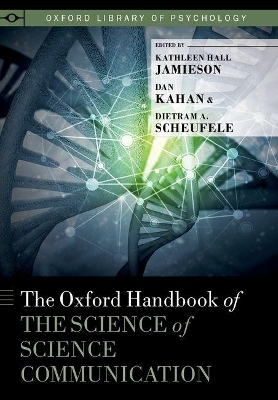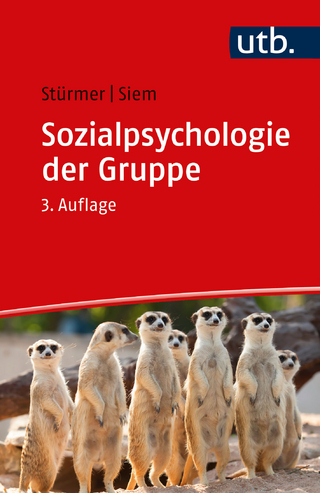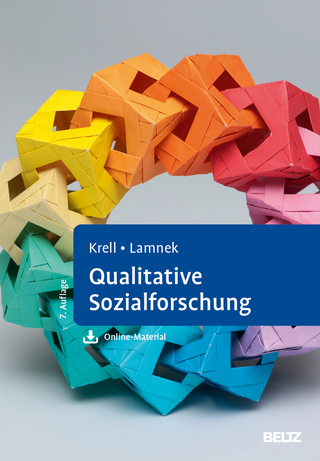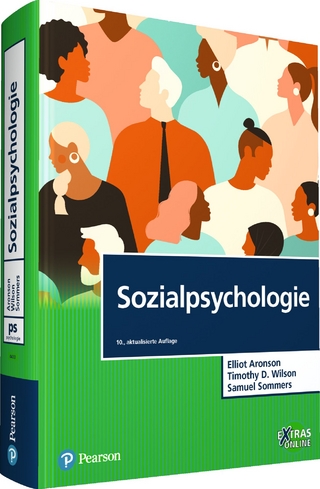
The Oxford Handbook of the Science of Science Communication
Oxford University Press Inc (Verlag)
978-0-19-049762-0 (ISBN)
The proposal to vaccinate adolescent girls against the human papilloma virus ignited political controversy, as did the advent of fracking and a host of other emerging technologies. These disputes attest to the persistent gap between expert and public perceptions. Complicating the communication of sound science and the debates that surround the societal applications of that science is a changing media environment in which misinformation can elicit belief without corrective context and likeminded individuals are prone to seek ideologically comforting information within their own self-constructed media enclaves.
Drawing on the expertise of leading science communication scholars from six countries, The Oxford Handbook of the Science of Science Communication not only charts the media landscape-from news and entertainment to blogs and films-but also examines the powers and perils of human biases-from the disposition to seek confirming evidence to the inclination to overweight endpoints in a trend line. In the process, it draws together the best available social science on ways to communicate science while also minimizing the pernicious effects of human bias.
The Handbook adds case studies exploring instances in which communication undercut or facilitated the access to scientific evidence. The range of topics addressed is wide, from genetically engineered organisms and nanotechnology to vaccination controversies and climate change. Also unique to this book is a focus on the complexities of involving the public in decision making about the uses of science, the regulations that should govern its application, and the ethical boundaries within which science should operate. The Handbook is an invaluable resource for researchers in the communication fields, particularly in science and health communication, as well as to scholars involved in research on scientific topics susceptible to distortion in partisan debate.
Kathleen Hall Jamieson is the Elizabeth Ware Packard Professor at the Annenberg School for Communication of the University of Pennsylvania and the Walter and Leonore Annenberg Director of its Annenberg Public Policy Center. The author of four award winning Oxford University Press books on political and press communications, she is co-founder of FactCheck.org, which researches the veracity of claims made by political players. Its SciCheck feature was launched in 2015 to expose the misuse of scientific evidence in political discourse. Dan Kahan is the Elizabeth K. Dollard Professor of Law and Professor of Psychology at Yale Law School. He is a member of the Cultural Cognition Project, an interdisciplinary team of scholars who use empirical methods to examine the impact of group values on perceptions of risk and science communication. Dietram A. Scheufele is the John E. Ross Professor in Science Communication and Vilas Distinguished Achievement Professor at the University of Wisconsin-Madison and in the Morgridge Institute for Research. His research deals with the interface of media, policy, and public opinion. Scheufele has co-chaired the National Academies of Sciences, Engineering, and Medicine's Roundtable on Public Interfaces of the Life Sciences, and vice-chaired the recent Academies' consensus report on "Communicating science effectively: A research agenda."
Introduction: Why Science Communication?
Editors - Dan Kahan, Dietram Scheufele, and Kathleen Hall Jamieson
Part I: THE SCIENCE OF COMMUNICATING SCIENCE
1. The Need for a Science of Science Communication: Communicating Science's Values and Norms
Kathleen Hall Jamieson - Elizabeth Ware Packard Professor of Communication and Director, Annenberg Public Policy Center - University of Pennsylvania
2. Overview of the Science of Science Communication
Heather Akin - Annenberg Public Policy Center Postdoctoral Fellow in Science of Science of Communication - University of Pennsylvania
Dietram Scheufele - John E. Ross Professor of Science Communication and Vilas Distinguished Achievement Professor - University of Wisconsin-Madison, and Morgridge Institute for Research
3. On the Sources of Ordinary Science Knowledge and Extraordinary Science Ignorance
Dan Kahan - Elizabeth K. Dollard Professor of Law and Professor of Psychology - Yale University
4. How Changing Media Structures Are Affecting Science News Coverage
Mike S. Schäfer - Professor of Science Communication - University of Zürich, Switzerland
5. What the Public Thinks and Knows about Science: And Why It Matters
William Hallman - Professor of Human Ecology - Rutgers University
6. Scientific Controversies: Can the Science of Science Communication Provide Management Guidance or only Analysis?
Bruce Lewenstein - Professor of Science Communication - Cornell University
7. A Recap: The Science of Communicating Science
Joseph Hilgard - Annenberg Public Policy Center Postdoctoral Fellow in Science of Science of Communication - University of Pennsylvania
Nan Li - Assistant Professor of Agricultural Education and Communications - Texas Tech University
Part II: IDENTIFYING AND OVERCOMING CHALLENGES TO SCIENCE FEATURED IN ATTACKS ON SCIENCE
8. Science as "Broken" vs. Science as "Self-Correcting": How Retractions and Peer-Review Problems are Exploited to Attack Science
Joseph Hilgard - Annenberg Public Policy Center Postdoctoral Fellow in Science of Science of Communication - University of Pennsylvania
Kathleen Hall Jamieson - Elizabeth Ware Packard Professor of Communication and Director, Annenberg Public Policy Center - University of Pennsylvania
9. Publication Bias in Science: What is it, Why is it Problematic, and How Can It Be Addressed?
Andrew Brown - Scientist, Nutrition and Obesity Research Center and Office of Energetics - University of Alabama at Birmingham
Tapan Mehta - Assistant Professor in Health Services Administration and Associate Scientist, Nutrition Obesity Research Center - University of Alabama at Birmingham
David Allison - Quetelet Endowed Professor of Public Health, Associate Dean for Science, and Director, Office of Energetics - University of Alabama at Birmingham
10. Statistical Biases in Science Communication: What We Know About Them and How They Can Be Addressed
John Ioannidis - C.F. Rehnborg Chair in Disease Prevention, Professor of Medicine, and Director, Stanford Prevention Research Center (SPRC) - Stanford University
11. Is there a Hype Problem in Science? If So, How is it Addressed?
Peter Weingart - Professor Emeritus and former Director, Center for Interdisciplinary Research - University of Bielefeld, Germany
12. Is there a Retraction Problem? And, If So, What Do We Know About How It Is and Can Be Addressed?
Adam Marcus - Co-Founder - Retraction Watch; Managing Editor - Gastroenterology & Endoscopy News and Anesthesiology News
Ivan Oransky - Co-Founder - Retraction Watch; Vice President and Global Editorial Director - MedPage Today
13. A Recap: Identifying and Overcoming Challenges to Science Featured in Attacks on Science
Joseph Hilgard - Annenberg Public Policy Center Postdoctoral Fellow in Science of Science of Communication - University of Pennsylvania
PART III: SCIENCE COMUNICATION IN ACTION: FAILURES & SUCCESSES
14. A Comparative Study of Communication about Food Safety Before, During and After the "Mad Cow" Crisis
Matteo Ferrari - Assistant Professor of Private Law - University of Trento, Italy
15. Cross-National Comparative Communication and Deliberation about the Risks of Nanotechnologies
Nick Pidgeon - Professor of Environmental Psychology and Director, Understanding Risk Research Group - Cardiff University, Wales
Barbara Herr Harthorn - Professor of Anthropology, Director, NSF Center for Nanotechnology in Society, and group leader, NSF/EPA UC Center for Environmental Implications of Nanotechnology - University of California, Santa Barbara
Terre Satterfield -Professor of Culture, Risk and the Environment and Director, Institute for Resources, Environment and Sustainability - University of British Columbia, Canada
Christina Demski - Professor of Social & Environmental Psychology and Research Associate, Understanding Risk Research Group - Cardiff University, Wales
16. Communications about Biotechnologies and GMOs across Europe
Heinz Bonfadelli - Professor Emeritus - University of Zürich, Switzerland
17. A Tale of Two Vaccines - and their Science Communication Environments
Dan Kahan - Elizabeth K. Dollard Professor of Law and Professor of Psychology - Yale University
Asheley Landrum - Annenberg Public Policy Center Postdoctoral Fellow in Science of Science of Communication - University of Pennsylvania
18. A Recap: Science Communication in Action
Heather Akin - Annenberg Public Policy Center Postdoctoral Fellow in Science of Science of Communication - University of Pennsylvania
PART IV: THE ROLES OF ELITE INTERMEDIARIES IN COMMUNICATING SCIENCE
19. Science Communication at Scientific Institutions
Tiffany Lohwater - Director of Meetings and Public Engagement - American Association for the Advancement of Science
Martin Storksdieck - Professor and Director, Center for Research on Lifelong STEM Learning - Oregon State University
20. The Role of Scholarly Presses and Journals
Barbara Kline Pope - Executive Director for Communications - The National Academies; Executive Director - National Academies Press
Elizabeth Marincola - Chief Executive Officer - Public Library of Science (PLOS)
21. The Role of Governmental Organizations in Communicating About Regulating Science
Jeffery Morris - National Program Director for Nanotechnology - Environmental Protection Agency
22. Science Communication and Museums' Changing Roles
Victoria Cain - Assistant Professor of History - Northeastern University
Karen Rader - Associate Professor of History - Virginia Commonwealth University
23. The Role of Funding Organizations: Foundations
Elizabeth Good Christopherson - President and Chief Executive Officer - Rita Allen Foundation
24. Promoting Popular Understanding of Science and Health through Social Networks
Brian Southwell - Director, Center for Communication Science - RTI International; Adjunct Professor (Energy Initiative) - Duke University; Research Professor (Media & Journalism) and Adjunct Associate Professor (Health Behavior) - University of North Carolina at Chapel Hill
25. Designing Public Deliberation at the Intersection of Science and Public Policy
John Gastil - Head and Professor of Communication Arts and Sciences and Political Science - Pennsylvania State University
26. Translating Science into Policy and Legislation: Evidence-informed Policy Making
Jason Gallo - Science and Technology Policy Analyst - Science and Technology Policy Institute
27. A Recap: The Role of Intermediaries in Communicating Science: A Synthesis
Asheley Landrum - Annenberg Public Policy Center Postdoctoral Fellow in Science of Science of Communication - University of Pennsylvania
Part V: THE ROLE, POWER, AND PERIL OF MEDIA FOR THE COMMUNICATION OF SCIENCE
28. The (Changing) Nature of Scientist-Media Interactions: A Cross National Analysis
Sara Yeo - Assistant Professor of Communication - University of Utah
Dominique Brossard - Professor and Chair, Department of Life Sciences Communication - University of Wisconsin-Madison
29. New Models of Knowledge-Based Journalism
Matthew Nisbet - Associate Professor of Communication Studies, and Affiliate Associate Professor of Public Policy and Urban Affairs - Northeastern University
Declan Fahy - Professor of Communication - Dublin City University
30. Citizens Making Sense of Science Issues: Supply and Demand Factors for Science News and Information in the Digital Age
Michael Xenos - CAPs Professor and Department Chair, Department of Communication Arts - University of Wisconsin-Madison
31. The Changing Popular Images of Science
David Kirby - Senior Lecturer in Science Communication Studies - University of Manchester, England
32. What Do We Know About the Entertainment Industry's Portrayal of Science? How Does It Affect Public Attitudes Toward Science?
James Shanahan - Professor and Dean, Media School - Indiana University
33. How Narrative Functions in Entertainment to Communicate Science
Martin Kaplan - Norman Lear Professor of Entertainment, Media and Society and Director, Norman Lear Center - University of Southern California
Michael Dahlstrom - Associate Professor of Journalism and Communication Iowa State University
34. Assumptions about Science in Satirical News and Late Night Comedy
Lauren Feldman - Associate Professor of Communication and Information - Rutgers University
35. A Recap: The Role, Power, and Peril of Media for the Communication of Science
Nan Li - Assistant Professor of Agricultural Education and Communications - Texas Tech University
Robert Lull - Annenberg Public Policy Center Postdoctoral Fellow in Science of Science of Communication - University of Pennsylvania
Part VI: CHALLENGES IN COMMUNICATING SCIENCE IN A POLARIZED ENVIRONMENT
36. Countering False Beliefs: An Analysis of the Evidence and Recommendations of Best Practices for the Retraction and Correction of Scientific Misinformation
Man-pui Sally Chan - Postdoctoral Research Associate, Psychology - University of Illinois at Urbana-Champaign
Christopher Jones - Annenberg Public Policy Center Postdoctoral Fellow (2014-16) - University of Pennsylvania
Dolores Albarracin - Professor of Psychology and Business - University of Illinois at Urbana-Champaign
37. Using Frames to Make Scientific Communication More Effective
James Druckman - Payson S. Wild Professor of Political Science and Faculty
Fellow, Institute for Policy Research - Northwestern University
Arthur Lupia - Hal R. Varian Professor of Political Science - University of Michigan
38. Philosophical Impediments to Citizens' Use of Science
Jonathan Baron - Professor of Psychology - University of Pennsylvania.
39. Overcoming Confirmation and Blind Spot Bias When Communicating Science
Kate Kenski - Associate Professor of Communication and Government & Public Policy - University of Arizona
40. Understanding and Overcoming Selective Exposure and Judgement When Communicating About Science
Natalie (Talia) Jomini Stroud - Associate Professor of Communication Studies and Assistant Director of Research, Annette Strauss Institute for Civic Life - University of Texas at Austin
41. Overcoming Innumeracy and the Use of Heuristics When Communicating Science
Ellen Peters - Professor of Psychology and Director, Behavioral Decision Making Initiative - Ohio State University
42. Overcoming Biases in Processing of Time Series Data about Climate
Bruce Hardy - Assistant Professor of Strategic Communication - Temple University
Kathleen Hall Jamieson - Elizabeth Ware Packard Professor of Communication and Director, Annenberg Public Policy Center - University of Pennsylvania
43. Understanding and Overcoming Fear of the Unnatural in Discussion of GMOs
Robert Lull - Annenberg Public Policy Center Postdoctoral Fellow in Science of Science of Communication - University of Pennsylvania
Dietram Scheufele - John E. Ross Professor of Science Communication and Vilas Distinguished Achievement Professor - University of Wisconsin-Madison, and Morgridge Institute for Research
44. Protecting or Polluting the Science Communication Environment? The Case of Childhood Vaccines
Dan Kahan - Elizabeth K. Dollard Professor of Law and Professor of Psychology - Yale University
45. Overcoming False Causal Attribution: Debunking the MMR-Autism Association
Nan Li - Assistant Professor of Agricultural Education and Communications - Texas Tech University
Talia Stroud - Associate Professor of Communication Studies and Assistant Director of Research, Annette Strauss Institute for Civic Life - University of Texas at Austin
Kathleen Hall Jamieson - Elizabeth Ware Packard Professor of Communication - Annenberg School for Communication and Director, Annenberg Public Policy Center - University of Pennsylvania
46. Overcoming the Challenges of Communicating Uncertainty Across National Contexts
Michael Siegrist - Professor of Consumer Behavior and Head of Institute for Environmental Decisions - ETH Zürich, Switzerland
Christina Hartmann - Professor of Consumer Behavior, Department of Health Sciences and Technology - ETH Zürich, Switzerland
47. A Recap: Heuristics, Biases, Values and Other Challenges to Communicating Science
Heather Akin - Annenberg Public Policy Center Postdoctoral Fellow in Science of Science of Communication - University of Pennsylvania
Asheley Landrum - Annenberg Public Policy Center Postdoctoral Fellow in Science of Science of Communication - University of Pennsylvania
Conclusion: On the Horizon: The Changing Science Communication Environment
Editors - Dietram Scheufele, Kathleen Hall Jamieson, and Dan Kahan
Index
| Erscheinungsdatum | 23.06.2017 |
|---|---|
| Reihe/Serie | Oxford Library of Psychology |
| Zusatzinfo | 37 |
| Verlagsort | New York |
| Sprache | englisch |
| Maße | 257 x 183 mm |
| Gewicht | 1111 g |
| Themenwelt | Geisteswissenschaften ► Psychologie ► Sozialpsychologie |
| Sozialwissenschaften | |
| ISBN-10 | 0-19-049762-9 / 0190497629 |
| ISBN-13 | 978-0-19-049762-0 / 9780190497620 |
| Zustand | Neuware |
| Haben Sie eine Frage zum Produkt? |
aus dem Bereich


